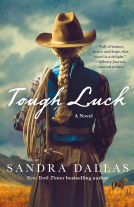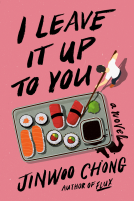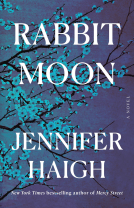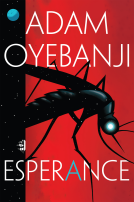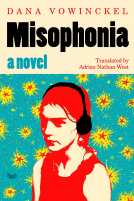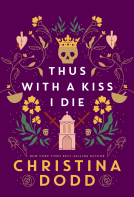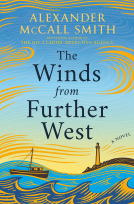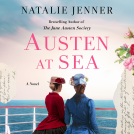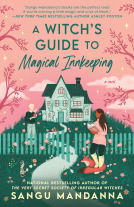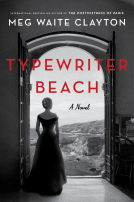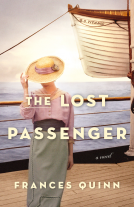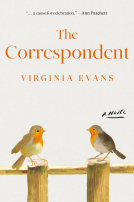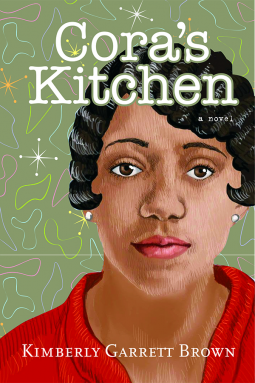
Cora's Kitchen
by Kimberly Garrett Brown
This title was previously available on NetGalley and is now archived.
Send NetGalley books directly to your Kindle or Kindle app
1
To read on a Kindle or Kindle app, please add kindle@netgalley.com as an approved email address to receive files in your Amazon account. Click here for step-by-step instructions.
2
Also find your Kindle email address within your Amazon account, and enter it here.
Pub Date Sep 20 2022 | Archive Date Feb 08 2024
Talking about this book? Use #CorasKitchen #NetGalley. More hashtag tips!
Description
WINNER, 2022 SARTON WOMEN’S BOOK AWARD FOR HISTORICAL FICTION
BRONZE WINNER, 2022 FOREWORD INDIES BOOK OF THE YEAR AWARD FOR MULTICULTURAL FICTION
It is 1928 and Cora James, a 35-year-old Black librarian who works at the 135th Street library in Harlem, writes Langston Hughes a letter after identifying with one of his poems. She even reveals her secret desire to write. Langston responds, encouraging Cora to enter a writing contest sponsored by the National Urban League, and ignites her dream of being a writer. Cora is frustrated with the writing process, and her willingness to help her cousin Agnes keep her job after she is brutally beaten by her husband lands Cora in a white woman's kitchen working as a cook.
In the Fitzgerald home, Cora discovers she has time to write and brings her notebook to work. When she comforts Mrs. Fitzgerald after an argument with Mr. Fitzgerald, a friendship forms. Mrs. Fitzgerald insists Cora call her Eleanor and gives her The Awakening by Kate Chopin to read. Cora is inspired by the conversation to write a story and sends it to Langston. Eventually she begins to question her life and marriage and starts to write another story about a woman's sense of self. Through a series of letters, and startling developments in her dealings with the white family, Cora's journey to becoming a writer takes her to the brink of losing everything, including her life.
A Note From the Publisher
Advance Praise
Finalist, 2018 William Faulkner – William Wisdom Creative Writing Competition
Finalist, 2016 Louise Meriwether First Book Prize
"...powerful....Brown speaks to timeless struggles of women who had ambitions that reached beyond traditional expectations. Moreover, Brown crafts Cora as an incredibly perceptive narrator and foregrounds race-related issues through an absorbing plotline with some unexpected turns....An affecting novel of female friendship and a desire for independence."
—Kirkus Reviews
"It has been said, the universal is found in the specific, and in CORA’S KITCHEN all women will find their challenges and longings expressed in unflinching honesty. Kimberly Brown’s characters are faithful to a time, yet timeless, transcending the years to both painfully and beautifully illustrate the struggles women face to find and fulfill their vocations. Spellbinding.”
—Erika Robuck, national bestselling author of The Invisible Woman
“All told, Cora’s Kitchen is a masterful look at the many ways in which racism, classism and misogyny overlap and oppress.”
—The Indypendent
“Kimberly Garrett Brown has written an outstanding novel which rings true as a depiction of a budding writer and conveys an important message about overlapping, concurrent forms of oppression.”
—The Compulsive Reader
"A Black woman rebels against racism and class, finding her voice....[Cora is] a transcendent heroine.”
—Foreword Reviews
"Brown’s story digs much deeper than the plight of women. It gets down to the plight of self-preservation in a society bent on suppression, not solely based on gender, but also on class, money, and specifically color....Relationships are tested in a heart-pounding climax."
—Paula Shaffer Robertson, StoryCircle Book Reviews
"… Cora’s Kitchen delves deeply into what it means to be a Black woman with ambition, to make choices and keep secrets, and to have an unexpected alliance with a white woman that ultimately may save both of them. In this intimate and expansive novel, Kim Garrett Brown renders Cora with immense empathy, acknowledging and confronting Cora’s own prejudices and allegiances and the social pressures that continue to reverberate far beyond this story. Cora’s Kitchen is a poignant, compelling story in which misfortune and fortune cannot be teased apart and literature and life have everything to do with each other.”
—Anna Leahy, author of What Happened Was: and Tumor
“Told by a woman of color who dares hold literary ambitions during the Harlem Renaissance, her story touches on the burdens women of all classes and races frequently carry–– the stress of having to make a living while dealing with the complexities of marriage and family life, and at the same time, wanting more for themselves….I suspect many readers, especially women readers like me, will devour this beautiful and moving story in one sitting. Indeed, Cora’s Kitchen is destined to become a feminist classic.”
—Rosemary Daniell, award-winning author of Secrets of the Zona Rosa: How Writing (and Sisterhood) Can Change Women’s Lives, and nine other books of poetry and prose
Available Editions
| EDITION | Paperback |
| ISBN | 9781771338516 |
| PRICE | $22.95 (USD) |
Available on NetGalley
Featured Reviews
 Ellen M, Librarian
Ellen M, Librarian
This engaging story has quite a bit of potential as a book club choice. It’s relatively short and a quick read with a story that keeps moving right along. It also provides lots of topics for discussion, race relations, the status of women, and how to realize a dream.
The tensions in Cora’s life will be familiar to lots of readers. She’s a working woman who procured a place working in a library to escape the kind of work that so many black women of her generation (the year is 1928) found available – cooks, house cleaners, and other types of domestics. Even so, she still has the responsibilities of maintaining her household and caring for her two children.
Her husband, a musician, works every night at the club, but doesn’t consider himself responsible for any of the work with a home or the children. He is not cruel or abusive, but she is still not sure if he would in any way be supportive of her dreams to be a writer.
Through her library job, she has met the prominent poet and writer Langston Hughes, and much of the book consists of the correspondence between them as well as Cora’s personal journal entries. She confesses to him her desire to be a writer, and he provides encouragement and advice. One surprising thing about that this story is that while Hughes is in touch with what it means to be a black American, he is not always as perceptive about what it means to be a woman, and here is where I think the real discussions will spring from this book.
How much do women of different races share because they’re women, and how much are their circumstances different? When Cora is offered a patronage by a wealthy white woman, she comes across all of these questions and more as she works to find the story she wants to tell.
Thank you to Netgalley which provided me a free copy of the book in return for an honest review.
 Laura H, Reviewer
Laura H, Reviewer
Plot: 4/5 Characters: 5/5 Writing: 4.5/5 Enjoyment: 5/5
In 1928, Harlem librarian Cora James writes a letter to Langston Hughes whose poetry has inspired her. In ongoing correspondence, he supports her confessed desire to write and offers advice and commentary on her writing attempts.
There are more story elements including a surprising friendship with a white woman and a dangerous encounter, but for me the real story is about Cora’s awakening to the concept of having her own dreams and desires — beyond the expectations of being a wife and mother, a Black woman, and a good Christian. I absolutely loved and was startled by her own recognition of the limitations placed on her by societal and familial norms that she hadn’t even been aware of herself.
As part of the story she reads literature — Kate Chopin’s The Awakening, W.E.B Du Bois’ The Souls of Black Folk, Miss Esale Fauset’s There is Confusion, Walt Whitman’s Leaves of Grass, Nella Larsen’s Quicksand — and each informs her developing desire to express more than she knew she had in her to express. It is thoughtful, inspiring, and fascinating. Her reactions to works of literature are individual. She doesn’t like Amos and Andy or the characters in a prize winning Zora Neale Hurston story because she feels they make colored people look like fools. And she doesn’t want to write the standard colored woman story — growing up poor and oppressed in the South etc. She says, “We have been through so much as a people, but we have endured. I guess that’s why I think racism and oppression shouldn’t be our only focus. There are other stories to tell.” And in the end, when forced to choose, she makes what I found to be a surprising (and I was surprised that I was surprised by this) choice to identify more with the womanhood of her characters, rather than their Blackness). She explains it much better than I can, so I’ll let you read the story.
I loved this book and read it in a single sitting (Ok — I was on a long plane flight BUT I had plenty of other books available on the kindle!).
Just a couple of quotes to let you see how Cora’s mind works:
“But most books written by colored authors are about race one way or another. And though I know it’s important to talk about, I’m tired of that being the focus all the time. There are other things in life that are just as important. Dreams. Desires. But maybe that’s too much to ask of a book.”
“But I wish Miss Larsen spent more time exploring Helga Crane’s desire for individuality and beauty, rather than her struggle as a mulatto woman trying to figure out where she belongs. Then maybe the novel would have spoken more to the workings of a colored woman’s mind.”
 Marilee P, Librarian
Marilee P, Librarian
What a book! So much to say about it, but don't really have the words. Not only was I interested in the exploration between black and white women, and their relationships with each other and their families, I was also inspired by the suggestions Langston Hughes gave for writing. It has made me want to pick up a pen and write! I highly recommend this book for all.
